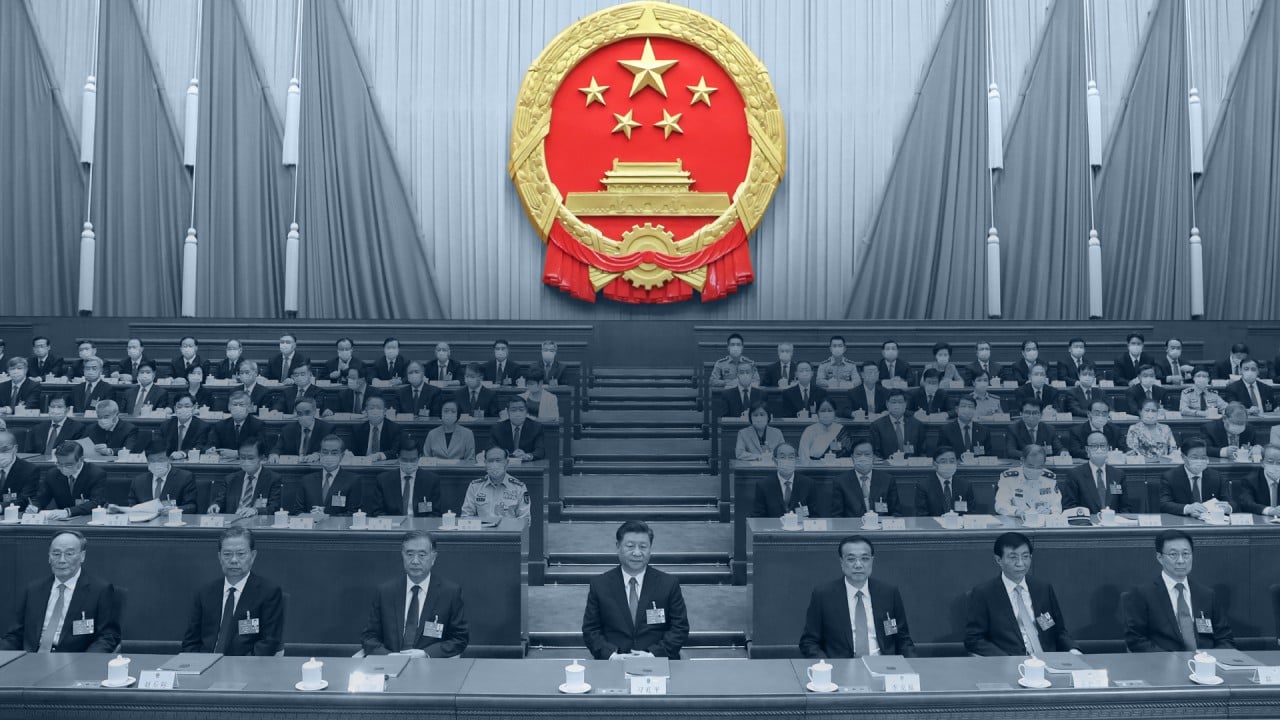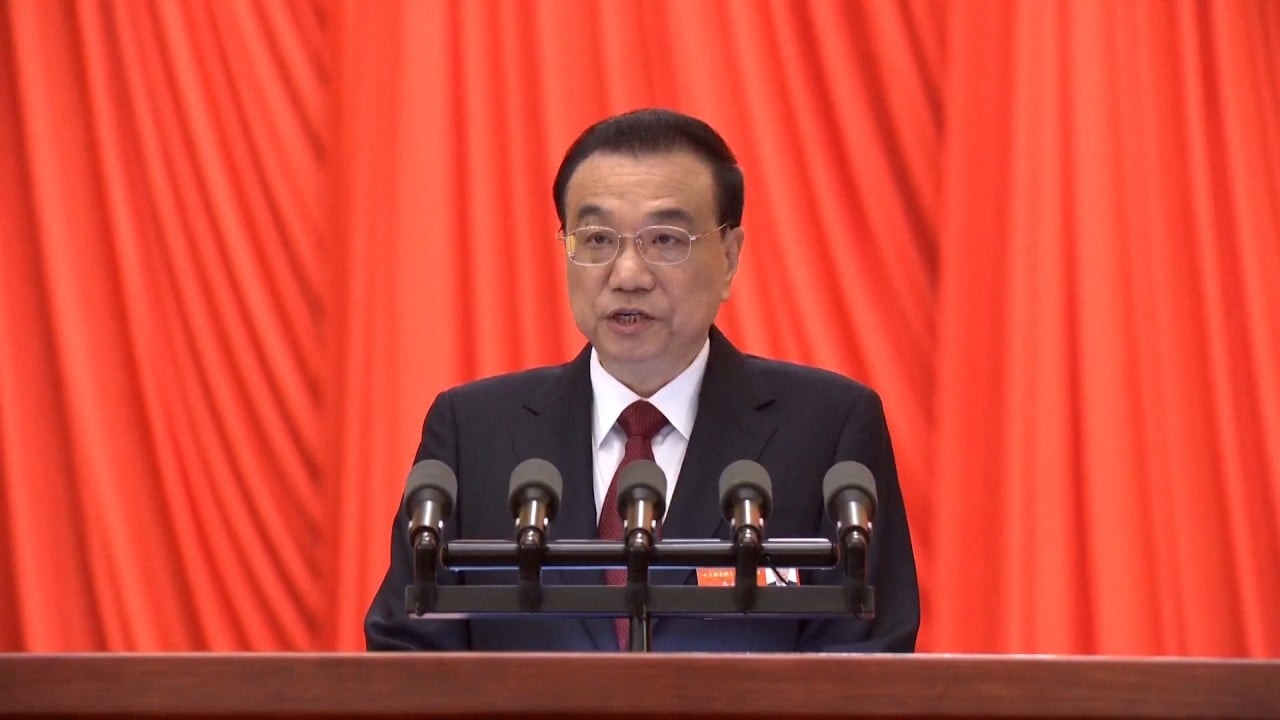
Explainer | 6 takeaways from China’s ‘two sessions’ and the economic turmoil that followed
- Optimism and vows of stability at Beijing’s annual parliamentary sessions were followed by stock market losses and growing concerns over the Ukraine war’s impact on China
- From job growth and common prosperity, to regulatory crackdowns and zero-Covid goals, Chinese leaders addressed their most pressing priorities for 2022
After last week’s annual parliamentary meetings, which were overshadowed by Russia’s invasion of Ukraine, China’s stock market this week experienced a level of tumult rarely seen since the stock market meltdown in the summer of 2015.
Disrupted by its worst Covid outbreak in two years, and challenged by growing pressure from the West to condemn Russian aggression, China is grappling to tame economic headwinds, and its efforts have been further complicated by the US Federal Reserve’s rate-hike projection.
Here are the economic priorities listed out during the annual parliamentary meetings, known as the “two sessions”, and a rundown of how things have evolved this week.
GDP
Li stressed the importance of preventing systemic risks and said the government would set up a fund to ensure financial stability, as he delivered the government work report to the National People’s Congress.
But the optimism was quickly quelled by the stock market rout, a rise in capital outflow and concerns over Covid restrictions amid other long-time grievances pertaining to the property sector, a crackdown on Big Tech and sluggish private sector.
To ensure stability and consistency with policy expectations, the officials declared that any policy that could have a significant impact on the capital market should be coordinated with the financial regulatory department in advance, while flagging the need for caution in unveiling contractionary policies.
Jobs
There was a greater emphasis on job creation at the two sessions, as Li admitted that the task of stabilising employment is “more formidable”. The headline jobless rate is targeted at “within 5.5 per cent” for this year.
The latest unemployment rate is largely within the target, but lay-offs among workers aged 16 to 25 remain high, with the jobless rate rising to 15.3 per cent in combined figures for January and February, up from 14.3 per cent in December.
As Beijing tries to allay small-business fears, is it enough to ease minds?
Zero-Covid
China’s zero-tolerance policy in dealing with the coronavirus is increasingly at odds with the rest of the world, which has largely opted to loosen restrictions. There were suggestions and debates about loosening the strict controls, including the resumption of international exchanges, to help mitigate the disruption to economic activities.
Following the conclusion of the two sessions, and amid the rapid surge of Covid-19 infections in the country, China has allowed the public to take rapid antigen self-tests to enhance early detection, in addition to implementing lockdowns and conducting mass screenings.
Researchers say the rapid antigen test market on the mainland could reach 34 billion yuan (US$5.35 billion) each month.
President Xi Jinping urged officials on Thursday to make Covid-19 control a top priority, and he said measures should be effective and precise to achieve maximum prevention and the greatest effect, at a minimal cost to the economy.
Chinese Covid-19 test kits ‘able to screen 51 million people daily’
Real estate
Read out by Li, the report pledged to stabilise prices of land and properties, as well as enhance stability.
And a report to lay out tasks by the state planner, the National Development and Reform Commission, said it will improve foreign debt management and prevent foreign debt risks in the property market.
To rein in its red-hot housing market, China looks to Zunyi
Hours after the meeting chaired by Liu on Wednesday to prevent market rout, the Ministry of Finance pulled back a plan to roll out a nationwide property tax, as research showed that conditions were not yet ripe this year.
Private firms, common prosperity
China announced 2.5 trillion yuan worth of tax rebates in 2022, among a set of tax breaks and cuts for small businesses, which have been hit especially hard by the pandemic and Beijing’s crackdowns in sectors such as tech and private tutoring, which comprise mostly private companies.
China’s private sector is responsible for about 80 per cent of the nation’s urban jobs.
China jobs: inside the world’s biggest workforce
Wang said Beijing will “unswervingly” encourage and support the development of the non-public sector and will stick to its economic system that strives for the “common development of various forms of ownership”.
Wang called for confidence in the party’s policies, but analysts said more measures are needed to reassure the private sector, which is likely to continue suffering from the pandemic and economic slowdown.
Li said at the press conference that China will continue to open up and keep all companies on an equal footing.
‘It’s a headache’: China’s local officials grapple with ‘common prosperity’
Looking inward or opening up?
The two sessions underscored self-reliance in major areas of the economy, including agriculture, key commodities and hi-tech sectors, in the face of turbulent global markets and rising hostility from the US and its allies.
Ukraine war: US-China talks focus on Beijing’s support of Russia
State media reported that the trade teams of both the US and China are maintaining normal exchanges, while the Office of the US Trade Representative said the US is “engaged in direct talks” with Beijing about its commitments under the phase-one deal and “the harmful impacts” of its industrial policies.
Xinjiang, in China’s far west region, and Fujian province in the east, as well as the China-Europe Railway Express, were also singled out as areas of importance in the belt and road push.



